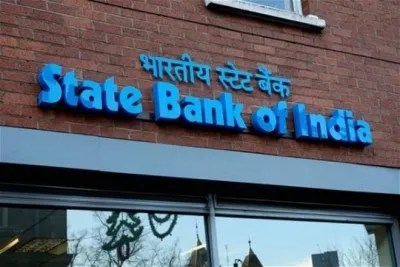What is SBI's floor price for its Rs 20,000 crore bonds?

Synopsis
Key Takeaways
- The floor price for SBI's bond issuance is set at Rs 811.05.
- SBI aims to raise Rs 20,000 crore through bond sales.
- The subscription period for the bonds began recently.
- Investment banks involved include ICICI Securities and Morgan Stanley.
- The initiative is part of SBI's strategy to boost its capital base.
New Delhi, July 16 (NationPress) The State Bank of India (SBI), recognized as the foremost public sector bank in the nation, has established a floor price of Rs 811.05 per equity share for its substantial Rs 20,000 crore bond issuance.
During a recent board meeting, directors sanctioned the initiative to acquire funds by issuing bonds to domestic investors.
The subscription window for this issue commenced on the same day, following the board's green light for the fundraising effort, as disclosed by the public sector bank to the exchanges.
This floor price reflects a decrease of 2.3 percent compared to the closing price of SBI shares on the BSE on that same day, where the stock concluded at Rs 831.55, marking a rise of 1.81 percent from the previous day.
SBI further confirmed via a regulatory filing that the Central Board has authorized the issuance of ‘Basel III-compliant Additional Tier 1 and Tier 2 bonds’ with a maximum limit of Rs 20,000 crore for the ongoing fiscal year.
Pending any necessary government approvals, these bonds will be offered to domestic investors in Indian rupees, aiming to bolster the capital base of the nation’s largest bank.
Earlier in May, the SBI board approved an increase of Rs 25,000 crore in equity capital for FY26.
Capital will be raised through methods such as Qualified Institutional Placement (QIP), Follow-On Public Offer (FPO), or other sanctioned channels in multiple tranches.
The objective is to enhance SBI's Common Equity Tier 1 (CET1) capital ratio to strengthen the bank's financial health.
As a result of the anticipated QIP, the government's stake, which stood at 57.43 percent as of March 31, will undergo dilution.
SBI has appointed six prominent investment banks to manage the QIP process, including ICICI Securities Ltd, Kotak Investment Banking, Morgan Stanley, SBI Capital Markets Ltd, Citigroup, and HSBC Holdings Plc.
For the fiscal year 2024-2025, SBI had previously issued a dividend cheque to the government amounting to Rs 8,076.84 crore.
The public sector bank reported a remarkable net profit of Rs 70,901 crore for the same fiscal year.
Commemorating its 70th anniversary, the bank's balance sheet has expanded to Rs 66 lakh crore, with a customer base exceeding an impressive 52 crore.










